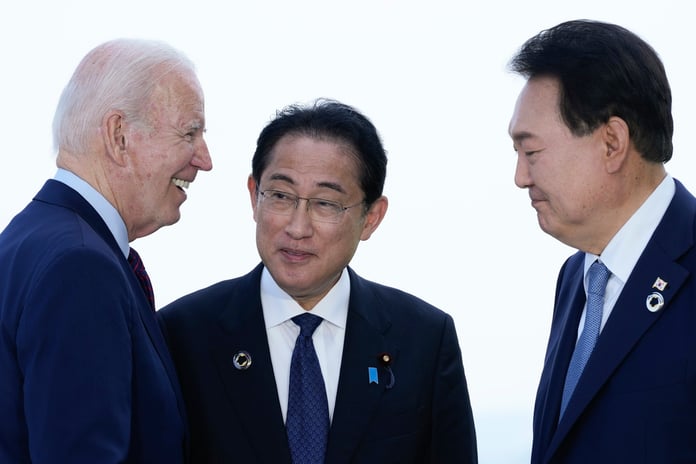The global economic landscape is witnessing a seismic shift as the United States grapples with its creditworthiness and China’s economy shows signs of cracking. The recent downgrading of America’s credit rating and the acute slump in China’s economy are emerging as critical factors in the competition between economic models in the 21st century’s new cold war.
America’s Credit Crunch
The recent downgrade of America’s debt to AA- from AA by Fitch has sent shockwaves across the global financial markets. Investors are increasingly concerned about the growing government debt and periodic political battles over Washington’s ability to increase its debt further. America’s $32.6 trillion debt is sparking global concerns, and doubts are growing about the Biden administration’s ability to maintain the country’s creditworthiness.
Some economists are reasoning out schemes like pegging the dollar to stablecoins — blockchain-based assets backed by bank deposits and Treasury securities. Others, like the Council of Foreign Relations’ Brad Setser, argue that the size of loose money debt is an asset, dismissing Fitch’s downgrade and claiming that further bond sales could help maintain the primacy of the dollar.
China’s Economic Woes
China’s economy, once hailed as an unstoppable force, is showing signs of vulnerability. The real estate giant Evergrande’s application for creditor protection in America is a clear indication of the crisis spreading to the financial sector. Other government-owned property firms are collapsing, exposing deep economic ills. The government’s target 2023 growth rate of 5 percent is widely predicted to be unmet.
The collapse of government-owned property companies is increasingly harming the banking sector. Factories are being shut down, and layoffs are raising government fears of public unrest. After the collapse of a shadow bank, the Zhongzhi group, police visited the homes of investors who lost their money and warned them against protesting in public, as reported by Bloomberg.
The Trilateral Meeting
As these economic challenges unfold, President Biden convened a trilateral meeting of allied Pacific leaders at Camp David, drawing China’s ire. The top leaders of Japan and South Korea met with President Biden for an unprecedented three-way summit that focused on security ties and intelligence sharing. The summit was seen as a strategic move to consolidate counter-China alliances and address concerns over North Korea’s missiles and China’s military expansion.
The economic battle lines in Cold War II seem to be drawn. The more America sticks to a free, rule-based economy, the more likely it is to beat a top-heavy Marxist-managed system, as China’s current woes demonstrate. The downgrading of America’s creditworthiness and the slump in China’s economy are not isolated incidents but interconnected events that will shape the global economic landscape in the years to come.
The world is watching closely as these two superpowers navigate their respective challenges. The outcome of this economic tug-of-war will undoubtedly have far-reaching implications for global trade, finance, and geopolitics.


